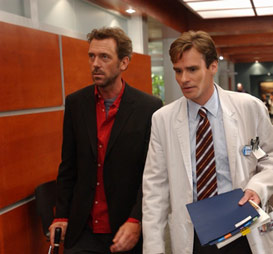How Do You Know Before You Know? You Guess. (And You May be Wrong)

Trying to promote a book is a humbling experience. You find out very quickly that people don’t have time to look at or think about the work that took you eight years to produce. It’s clear why: the number of people and objects that want our attention overwhelms us all. I don’t take it as a personal rejection, for I know that I’m the same way. I cannot possibly respond to everyone who wants my attention. That’s not news. What I have learned from it, though, is to respect the importance of salesmanship. As a civilized person of modest ambition, I’ve never admired competitive people who seek fame and glory. But now there’s something I do want people to notice, and I need to find a respectable way of catching their attention.
Unfortunately, people really do judge books by their covers. Or even by their titles. They think they know what it must be about, so they don’t need to open it. Nor do they care to have a conversation about it. Again, it’s pointless to blame them for this. It’s a normal, human way of managing time. If you’re lucky they’ll give you time for a “sound bite” – a one-sentence summary of your argument. I read a newspaper report some months ago about a fellow who had worked on the Oprah show, filtering out the people who might be suitable guests. He had gone into business training people to get onto talk shows. The first thing he’d do is to give all his workshop members the paper from a fortune cookie. Their assignment was to write on the back of it the message that they wanted to convey on the air.
I can’t do that very well. I’m having trouble promoting the book for that very reason. Give me a business card and I might come close — but a fortune cookie? No. I am painfully aware that a simplistic one-sentence pitch is bound to be misleading. At best, it can only open a conversation. I hope nobody ever assumes they know what is coming in the conversation before they hear it – but we all do. Conversations are a process of guessing and responding to what we think is coming, then letting our interlocutor clarify our misconceptions. In that way, our imagination shapes the reality that emerges in discussions.
Of course, imagination is the source of reality in quite a lot of different ways. We have to imagine what to do before we do it, and by doing it we make it into reality. But the proposition can be expanded beyond that.
The late communications expert George Gerbner advanced something called “the mean world” thesis. He pointed out that people who watch lots of crime shows(imaginatively created by smart Hollywood writers) are more likely to believe that crime is rampant than people who watch mainly comedies or other dramas. They act on the basis of their beliefs, by buying guns, for example, to protect themselves from the hordes of criminals who are, they suppose, preparing to break into their homes and assault them. According to some political scientists at Ohio State University, they also are especially likely to believe that crime is the number one problem for the country. They vote accordingly. Politicians take polls to find out what people worry about and respond to these opinions. Hence the crime show makes crime into a major political issue, when it would not have been if voters had been reacting entirely to their own experience (or lack of experience) as victims of crime.
As I mentioned in a recent blog entry, the information imparted on medical shows such as ER make a great impression on people, for better or worse. Viewers may become preoccupied with their own possible ailments. If the show imparts accurate information, its influence is probably beneficial. Last night I watched an episode of House (see photo) that informed me about the differential diagnoses of hepatitis E, lupus erythematosis, and poisoning by some chemical used to kill cockroaches. I doubt that I’ll ever need this information, but the real message was more interesting. It showed how physicians have to take action in a context of uncertainty. They cannot be sure of their diagnoses, but they have to treat the patient anyway. They guess. We all guess.
Along with these sources of stress we receive messages about how we should learn to be serene in the midst of chaos, unattached to the fruits of our own actions. We believe somehow in modern versions of the Bhagavad-Gita. But we cannot really attain that insouciance. (Forgive me, you Eastern religious types, for referring to your spiritual enlightenment with a term that belittles it.) I don’t want a doctor who is serene when I am dying from some unknown disease that may be hepatitis E, lupus, or an environmental toxin. Be tense, please. And try to listen to what I have to tell you without assuming you already know it. We cannot know before we have the relevant facts, however stress that fact causes. Peace be with you – if you can snatch a little of it now and then in between your responsible acts. Peace.



0 Comments:
Post a Comment
<< Home